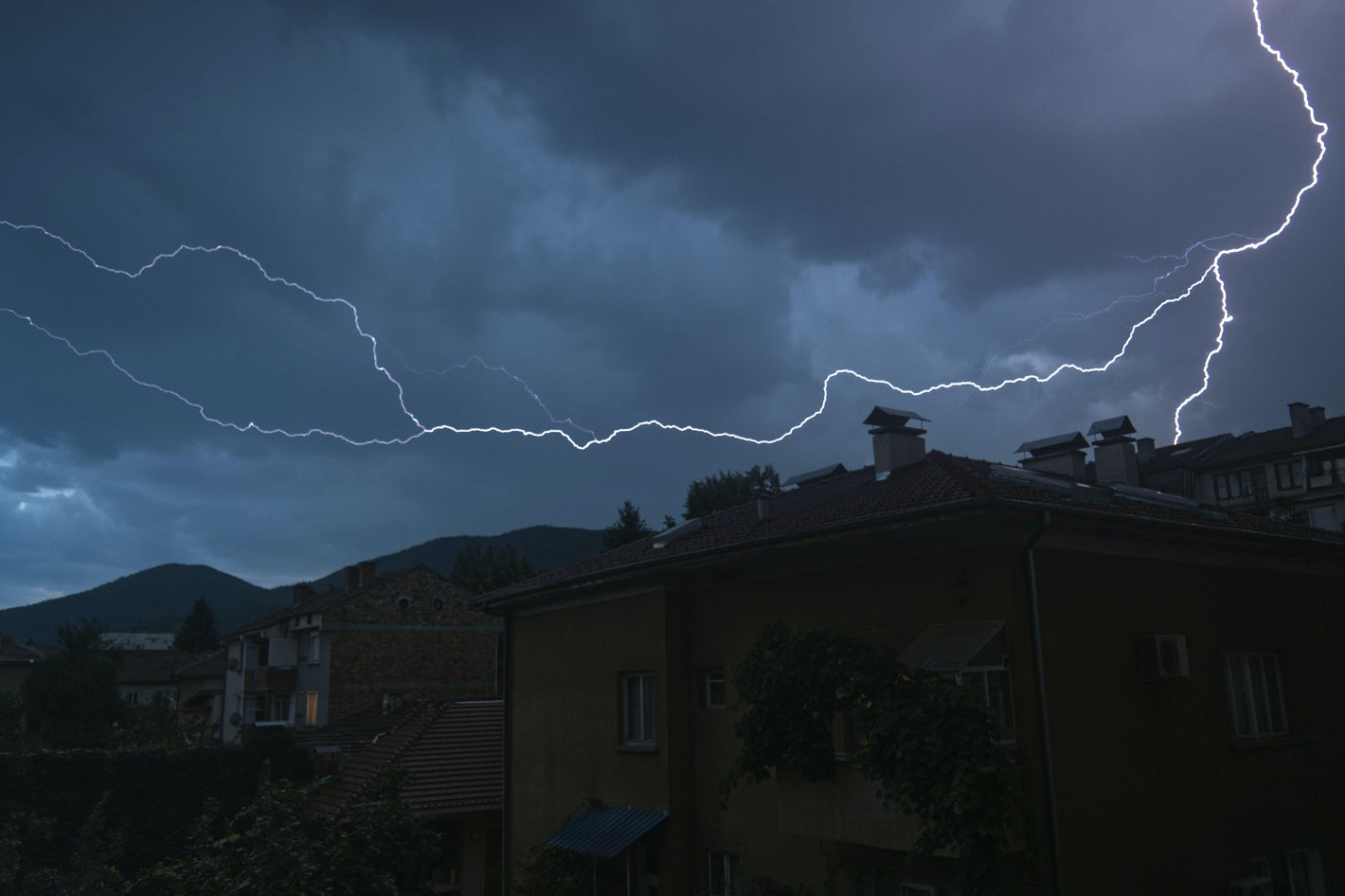What Is Astraphobia?



This severe phobia is associated with a fear of lightning, thunder, and thunderstorms. Preventing extreme storms is only sometimes feasible, and it is occasionally necessary to prepare ahead of time. However, you may take precautions to control your fear if a storm occurs. Are you terrified of loud sounds caused by thunder and lightning? Maybe you have this phobia. Keep reading to know more about what astraphobia is.
The irrational fear and intense dread of lightning and thunderstorms is called astraphobia, sometimes referred to as brontophobia. Astraphobia is derived from the Greek terms phobos and astrape, respectively, which signify dread and lightning. It is a phobia described as a continuous and overwhelming dread of particular items or circumstances that interferes with normal functioning. In planning for a thunderstorm, a person with astraphobia may experience severe anxiety, obsessively monitor the weather forecast, and experience panic attacks when a storm occurs.
Furthermore, it could be among the most prevalent particular phobias. While astraphobia most commonly impacts children, it may also affect adults. Most people's astraphobia stems from family background or terrible weather events, like experiencing a natural catastrophe. When you have astraphobia, you might experience great worry whenever a storm is approaching, resulting in panic attacks in specific individuals. You could also obsessively monitor and study weather forecasts, which might heighten your anxiety.

Astraphobia is more common among kids. Storms also frighten people with autism spectrum or sensory processing disorders. You are also more prone to develop astraphobia when you possess any of the following characteristics:
Previous exposure to weather-related stress, including surviving a catastrophic natural catastrophe.
Astraphobia family members
Phobias, anxiety disorders, and depression run in the family.
Factors including experience, history, and genetics, as with other particular phobias, may all play a role in forming this phobia. Traumatic events may also contribute to the emergence of these anxieties. Individuals may have an intense fear of outer space after seeing terrifying television programmes or films about it. According to research, phobias might run in families. Having an immediate family member who exhibits anxious reactions might also enhance a person's chances of acquiring a phobia.
Astraphobia is often associated with the dread of being far from home, alone, and dark. Furthermore, it might come from a fear of space travel provoked by real-world disasters like explosions.

As with other phobias, the primary symptom of astraphobia is intense dread. Numerous individuals know their concern is disproportionate to the actual harm a storm poses. However, symptoms might be challenging to treat.
The anxiety caused by astraphobia may result in bodily symptoms like
Difficulty breathing
Palpitations in the heart
Nausea
Numbness in the chest,
Trembling all over the body
Other astraphobia symptoms include:
A compulsive need to observe the storm
Uncontrolled sobbing, especially in children
Pounding heart
Sweaty fingers
People with astraphobia could also feel compelled to seek refuge from thunder and lightning in a bathtub, bathroom, or closet. Furthermore, they may want to cling to other people for safety.
Several individuals could be predisposed to this persistent fear. Storms may be particularly frightening for children, although most evolve out of them as they become older. Since of their increased awareness to sound, certain kids with sensory processing and autism disorders, including auditory processing disorder, can struggle to control their feelings during a storm.

Anxiety is also frequent in autistic children. This might make things worse both before or during a disaster. Anxiety problems frequently occur in families and could have a hereditary component. People with a family history of anxiety, sadness, or phobias are more likely to develop astraphobia. Weather-related trauma might also be a potential risk. For instance, somebody who has experienced a traumatic or terrible experience as a result of extreme weather could develop a fear of storms.
Whenever you feel you develop astraphobia, among the first things you should do is consult a medical practitioner. Even though the reasons for phobias are unknown, the physician could do a comprehensive physical examination to verify there is no inherent health issue causing the disorder.
Your doctor may enquire whether you've had any of the following:
Anxiety that lasts six months or more.
Lightning and thunder should be avoided, even in images or movies.
You may experience extreme distress or terror whenever you witness thunder or lightning.
If a thunderstorm is predicted, you feel immediate fear or anguish.
Even though you believe you are secure, terror may mess with your life.
The therapy will centre on assisting you in unlearning your negative attitudes regarding thunder. You will also be offered better messaging and response techniques to prevent panic.
Anti-anxiety medications are occasionally used and can assist in combination with other types of treatment. Another medicine your physician can give to help control your symptoms is antidepressants.
Psychotherapy, especially exposure therapy, is typically the first-line medication for specific phobias. Several therapy techniques which could be beneficial include:
Exposure treatment entails gradually decreasing aversion to space and stars, increasing access, and employing relaxing methods.
Behavioural treatment involves reinforcing desired behaviours and removing undesirable ones.
Cognitive-behavioural therapy involves slowly modifying your thinking to avoid natural mental processes that associate space or stars with danger.
In addition to professional therapy, using various coping skills to decrease stress while living with a phobia might be beneficial. Several suggestions are as follows:
Meditation: This approach may help to relax both the body and mind.
Strategies for relaxation: Concentrate on anxiety-reducing practices. Deep breathing, visualisation, and gradual muscular relaxation are some approaches that may be beneficial.
If you're worried, knowing loved ones comprehend what you're experiencing may be a tremendous amount of comfort and peace.
In addition to other therapy choices, your therapist might advise you to acquire stress-management techniques to alleviate symptoms. These might include:
Practising affirmations to help you relax and feel secure
Spending quality time outdoors in an environment
Physical activity
Strategies for breathing
Kids often experience weather-related stress. When you have a youngster terrified of thunderstorms, you may assist them by trying to convince them that thunder cannot harm them.
Discovering more about storms.
Storms are being discussed as a natural element of existence, producing rain that feeds flowers and plants.
Giving them a secure, comfortable place to go during storms, especially when they have unique sensory requirements.
When your youngster is anxious about storms, more than discussing the storm at house may be required to relieve tension. If the anxiety persists, consult a mental health professional.
Several individuals may control their astraphobia symptoms with therapy. Astraphobia symptoms could compromise your health or relationships if left untreated. Astraphobia, if left untreated, might increase your likelihood of
Sadness, anxiety or other types of mood disorders
Isolation from others.
Drug addiction and alcoholism are examples of substance usage disorders.
There is no true technique to avoid astraphobia because it is still being determined who will acquire it or in what conditions it will acquire. Nonetheless, when you have it, you may keep it from worsening and interfering with your life. With a disease like this, it is critical to keep up your social engagements, doing things that amuse or please you.
Don't treat astraphobia carelessly, and don't allow others to treat it lightly. Phobias are broad, severe disorders that must not be taken lightly. If left untreated, they tend to worsen over time.
Numerous individuals could be afraid of becoming lost in space or unable to return home. Several individuals may consider the concept of zero gravity frightening rather than exciting. Whenever these concerns prevent an individual from having the life they desire or interfere with their ability to work, sleep, or eat, it may be time to seek the help of a mental health provider who has expertise in addressing phobias.
Furthermore, astraphobia is a severe dread of lightning and thunder. It is especially prevalent in kids. As individuals become older, they lose their fear of thunderstorms. However, astraphobia remains one of the most frequent particular phobias. Medication, talk therapy, or exposure treatment may be used to manage astraphobia. You could also study stress-reduction strategies to help you control your anxiety symptoms.
If you would like to learn more about anxiety, read our information page here.








Plus get the inside scoop on our latest content and updates in our monthly newsletter.